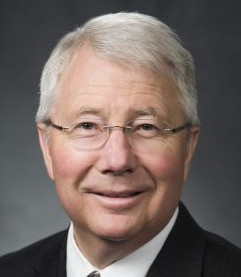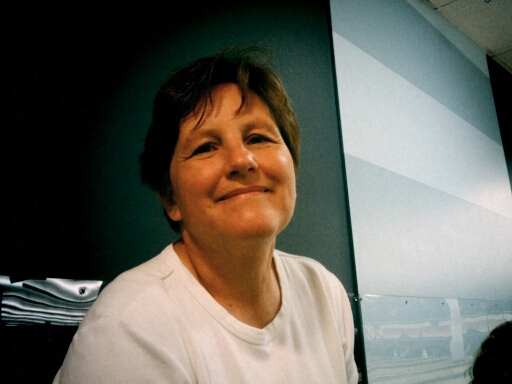About Us

History
On November 15 and 16, 2012, Professor P. Scott Richards at Brigham Young University organized a think tank for researchers and practitioners interested in bringing spiritually integrated psychotherapies into the healthcare mainstream. Twenty-nine outstanding researchers and practitioners attended the think tank, representing seven academic institutions and 12 mental health treatment sites around the United States. During the think tank, the participants agreed to create a practice-research network. We named the network Bridges because its mission is to build bridges between (1) spiritual and secular approaches to psychotherapy, (2) researchers and practitioners in the healthcare professions, and (3) members and helping professionals from many different religious traditions. We agreed that a practice-research network devoted to mainstreaming spirituality into healthcare would be vital in securing the future relevance, availability, and efficacy of spiritually integrated treatment approaches and other spiritual resources for the public.
In 2013, Professor Richards was awarded a sizable internal grant from Brigham Young University to begin a research program on spiritually integrated treatment approaches. He used that funding to conduct several practice-based evidence research studies. In 2014, Dr. Richards was awarded a $207,440 planning grant from the John Templeton Foundation to prepare for an international collaborative research project about the processes and outcomes of spiritually integrated psychotherapies. Several articles reporting findings and accomplishments from these grants were published in the American Psychological Association’s Spirituality in Clinical Practice journal (Miller, 2015; Richards et al., 2015; Sanders et al., 2015; Lea et al., 2015). In 2017, the Templeton Foundation awarded Professor Richards another 3.57 million dollar grant for the Bridges Enhancing Practice-Based Evidence for Spiritually Integrated Psychotherapies grant project. This three-year international grant sought to answer the Big Question, “Can the wisdom, values, and spiritual practices of the world’s great religious traditions improve the effectiveness of psychotherapy and other forms of mental health treatment?” Professor Richards and his team awarded approximately 1.8 million dollars to 19 research teams worldwide. The funded research teams used practice-based evidence research designs to monitor treatment processes and outcomes of spiritually integrated treatment approaches at over 60 mental health treatment facilities in 8 countries. More information about this project and its research findings can be found on the Bridges-Templeton Foundation Grant page of this website.
Goals and Achievements
The Bridges practice-research network has successfully pursued and achieved the goals listed below over the past 15 years. The leaders of the Bridges Institute and our collaborators will continue to pursue these goals in the coming years.
- Secure grants to fund collaborative research studies and develop training materials on spiritually integrated treatment approaches.
- Conduct research on spiritually integrated psychotherapy treatment approaches.
- Publish journal articles on spiritually integrated psychotherapies in leading professional and scientific journals.
- Publish books on spiritually integrated psychotherapy research, practice, and training through reputable mainstream scholarly publishers.
- Mentor students in spiritually integrated psychotherapies who will ultimately teach and practice in universities, healthcare facilities, and school settings across North America.
- Offer training opportunities in spiritually integrated psychotherapies for professionals globally, enabling clients and students to access counseling that recognizes the importance of faith and spirituality in therapeutic change and healing.
- Pursue media coverage of Bridges’ research findings, publications, and other activities, including news reports, magazine articles, and film documentaries.
Resources for Collaboration
Since forming the Bridges Institute, we have worked to create avenues for practitioners, researchers, educators, and pastoral professionals interested in spiritually integrated treatment approaches to connect and collaborate. Collaborative research, training, and practice are more feasible today than ever. Web-based outcome assessment systems and data analysis tools simplify data collection and analysis. Online continuing education opportunities focused on spiritually integrated treatment are increasingly available. Sharing research, training, and practice resources online is now more manageable than ever. Owing to technological advancements, professionals worldwide can collaborate. Below are specific resources for collaboration in research, training, and practice that we have created at the Bridges Institute. To learn more about these resources, click the relevant links below.
- Bridges-Templeton Research Grant Findings
- Bridges Assessment System (BAS)
- Bridges Institute Video Library
- Continuing Education Offerings
- Other Professional Training Resources
- Other Research Resources
- Partners
- Publications about Spiritually Integrated Treatment
- Religious and Spiritual Assessment Measures
- Research Consulting Services
We invite practitioners, researchers, graduate educators, pastoral professionals, and clergy to join us in the global collaborative effort to integrate spiritually informed psychotherapies within mainstream healthcare. The time is right for this achievement. Our success will help ensure that religious and spiritual individuals around the world have improved access to healthcare services that honor and draw upon the healing resources of their faith communities and personal spirituality.
Our Leaders

P. Scott Richards, PhD, is the co-founder and president of the Bridges Institute for Spiritually Integrated Psychotherapies. He is a retired professor of counseling psychology at Brigham Young University and a past president and fellow of the Society for the Psychology of Religion and Spirituality (Division 36) of the American Psychological Association (APA). Additionally, he is a fellow of APA’s Society for the Advancement of Psychotherapy (Division 29). Among his seven APA books about spirituality and psychotherapy is the best-selling citation classic A Spiritual Strategy for Counseling and Psychotherapy (with Allen E. Bergin; second edition, 2005). He also co-edited the recently published Handbook of Spiritually Integrated Psychotherapies (Richards, Allen, & Judd, 2023).

Marcia Richards is the co-founder and vice president of the Bridges Institute. She earned a Bachelor of Arts in Media Arts from Brigham Young University in 2007. Marcia worked for TV production companies BYU Broadcasting and MirrorLake Films from 2006 to 2012, participating in teams that created various TV programs. Some of the programs Marcia contributed to included Total Body Workout, a series that taught yoga and aerobics; Living Essentials, a series focused on essential life skills; The Generations Project, a series that assisted individuals in exploring their family history; a series that examined religious history around the world, including the British Isles, Hawaii, France, Brazil, and Ukraine; and a gardening series that investigated gardening techniques globally. From 2012 to 2019, Marcia served as a university academic advisor, helping students navigate their university experience toward graduation.
